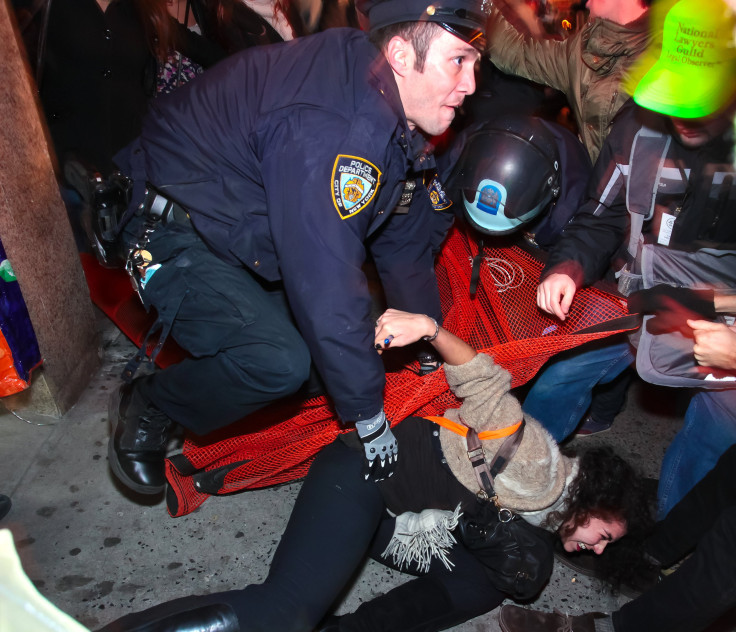Body Cameras May Prevent Excessive Use-Of-Force Among Police

Was the police officer who shot Michael Brown truly innocent, or was he in the wrong? It’s impossible for us to know if Darren Wilson was telling the truth, but if there were a way to record and track police officers’ actions, the consequences of the trial may have been different.
Researchers from the University of Cambridge’s Institute of Criminology (IoC) examined this question in a new study, and found that body-worn cameras certainly have the potential to induce self-awareness in police officers who are wearing them. At the same time, use of such cameras might also come with unfavorable consequences involving prosecution and data storage.
“Whether justified or unnecessary/excessive, the exercise of power by the police can potentially tarnish their relationship with the community,” the authors of the study wrote in their study's abstract. “Police misconduct can translate into complaints against the police, which carry large economic and social costs. The question we try to answer is: Do body-worn cameras reduce the prevalence of use-of-force and/or citizens’ complaints against the police?”
Cases of police brutality in Ferguson, Cleveland, and New York this year have ignited nationwide protests against excessive use of force. Whether or not you’re of the mind that the police need to be policed, it’s a discussion that must be continued. President Obama himself has pledged to increase the use of body-worn cameras among police officers. The Obama administration has proposed a three-year, $263 million spending package for body cameras, improved training for police officers, and police department reform resources, all in an effort to help “bridge mistrust” between police and the public.
“The president and his administration are very focused on the underlying issues that have been uncovered in a pretty raw way in Ferguson,” White House press secretary Josh Earnest said earlier this month, according to PBS. Obama added that "There is a big difference between our military and our local law enforcement, and we don’t want those lines blurred."
The Importance Of Self-Awareness
For the study, held throughout 2012 and 2013, researchers examined the effects of body cameras on police in Rialto, Calif. Officers wore the cameras over the course of 12 months in an experiment that became well-known for pioneering the use of "third-party surveillance." They found that the presence of these body cameras had a preventative impact on law enforcement, who were less likely to be abusive or use excessive force. Overall, use-of-force decreased by 59 percent among officers wearing cameras, and reports against officers dropped by a shocking 87 percent.
In a sense, self-awareness makes all the difference. “When you know you’re being watched you behave a little better,” Tony Farrar, Rialto’s police chief, told The Guardian. “That’s just human nature. As an officer you act a bit more professional, follow the rules a bit better.”
But if body cameras become the norm, the researchers warn, there might be reluctance to prosecute if there are no video recordings to supplement the case. There have already been instances in New Orleans in which some police officers wearing body cameras had them turned off, or had conveniently “lost them,” during sketchy situations.
Regardless, more research is needed to see the full impact of body cameras on police officers. It appears that they already make a huge difference. “With institutionalized body-worn camera use, an officer is obliged to issue a warning from the start that an encounter is being filmed, impacting the psyche of all involved by conveying a straightforward, pragmatic message: We are all being watched, videotaped, and expected to follow the rules,” Farrar said in the study’s press release.
Source: Ariel B, Farrar W, Sutherland A. The Effect of Police Body-Worn Cameras on Use of Force and Citizens’ Complaints Against the Police: A Randomized Controlled Trial. Journal of Quantitative Criminology. 2014.



























